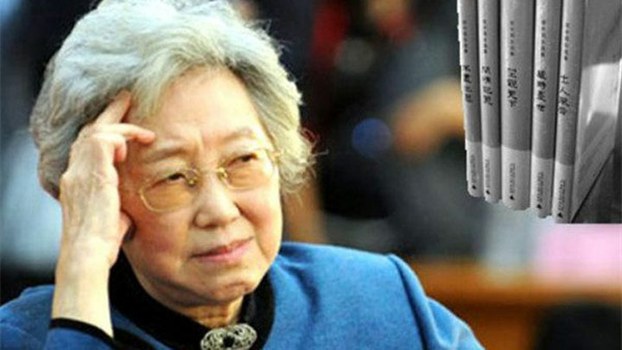




Outspoken scholar and translator Zi Zhongyun, a former director of the Institute of American Studies at the Chinese Academy of Social Sciences, announced in September that government censors had slapped restrictions on her social media account on the Twitter-like platform Sina Weibo. The 88-year-old Zi had gained a strong social media following for her liberal views, but until recently was still regarded as a privileged insider in the ruling Chinese Communist Party elite. RFA's Mandarin Service looked at some of her recent statements for clues about why she has been silenced:
Online searches this week showed that keyword searches for Zi's name on Sina Weibo were unavailable, while video and text of her comments were blocked.
Zi's previous comments have included some of the "Seven Taboos," topics banned from public discussion by the government's powerful propaganda bureau and Cyberspace Administration.
"Why are there so many different views on universal values?" Zi once said in a video clip still available on YouTube. "I don't think universal values are unique to the West."
In another comment, she asks: "Since we have already accepted that there must be a constitution, for the founding of the country, then why not use it?"
Later in the same clip, Zi says she hopes China will move forward with constitutional government, one of the Seven Taboos, which also include human rights and democracy, press freedom, civil society, citizens' rights, the historical mistakes of the Chinese Communist Party, the financial and political elite and judicial independence.
In another YouTube clip, Zi tells an audience that the purpose of a government is to ensure people's welfare and livelihood.
"If the people are being deprived of happiness, or harmed by others in the name of the state, then this cannot be called patriotism," she says.
"The people aren't an abstract concept. We often use the abstraction 'the people' to replace real human beings, saying that we work for the people, but it is not right to deprive people of their right to life."
Zi goes on to say that patriotism shouldn't just mean loving one's country regardless of how it treats its citizens.
"I think core values need to be about more than just patriotism, military might and prosperity; they also need to include freedom and democracy, justice and equality, the rule of law and civilized conduct," she says.
China’s achievements during the past 30 years are obvious to all, but the problems it faces are numerous, she continues.
"One is that the Chinese model [of economic reform without political reform] is not sustainable," she "The second is corruption, which is difficult to contain. The third is the widening gap between the rich and the poor, and the intensification of social conflicts."
Her comments were later criticized on the social media platform WeChat by Hu Yiren, professor at the School of Marxism at Beijing University of Aeronautics and Astronautics, as being inconsistent with Maoist patriotism.
And her former bosses of the Chinese Academy of Social Sciences said that her advocacy of constitutionalism was "an error."
Reported by Xiao An for RFA's Mandarin Service. Translated and edited by Luisetta Mudie.